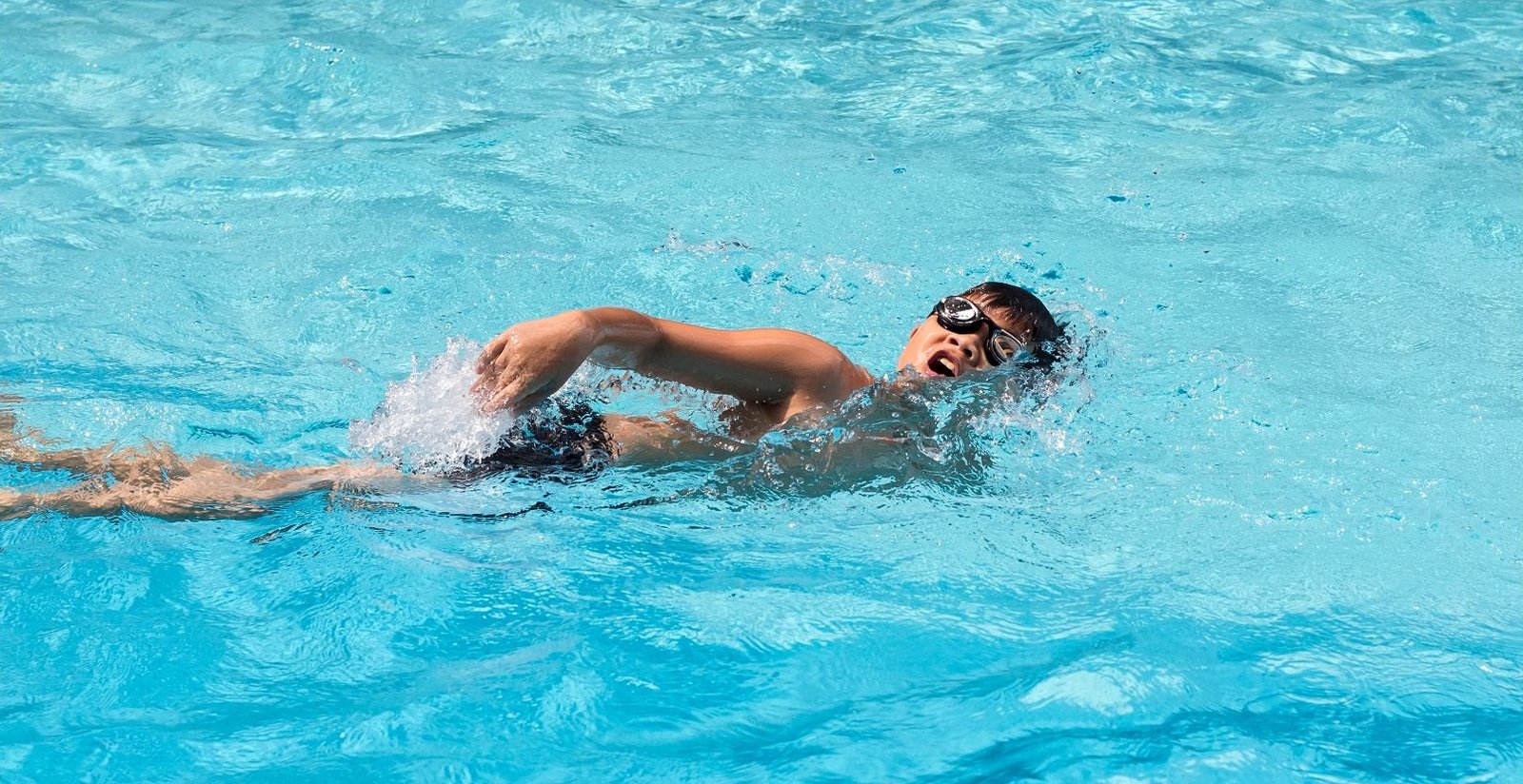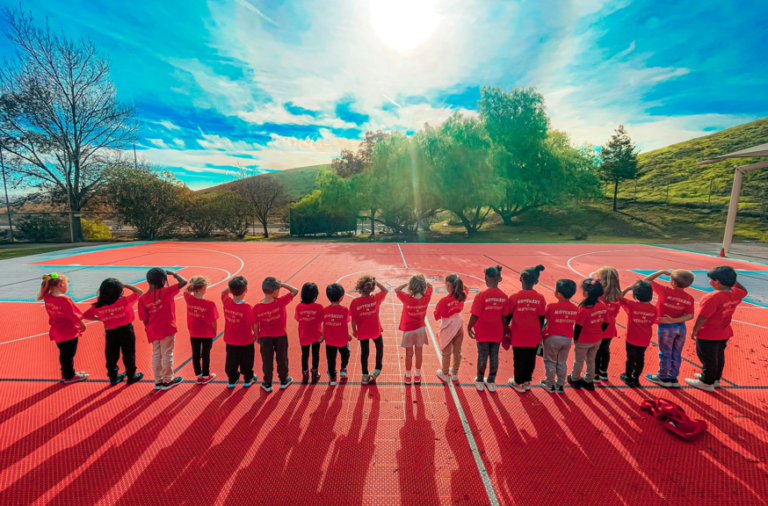Swimming is among the most beneficial sports kids could engage in. As a pleasant and exciting activity, swimming has several advantages for the physical, psychological, and social development of a child, all of which help the child to become generally matured and developed. We are covering in this article the main advantages of swimming for children. We will also be talking about the reasons swimming is a necessary ability that should be introduced from an early age.

1. Physical Health Benefits
One great full-body exercise for a child’s physical development is swimming. It helps youngsters keep a good heart and develop endurance by strengthening the respiratory and cardiovascular systems. Furthermore, swimming uses low-impact exercises that improve joint health and muscle development without running the danger of injuries usually connected with other activities.
Cardiovascular and Respiratory Health: Swimming forces the body to effectively pump blood and oxygen to maintain movement, therefore strengthening the cardiovascular system. This activity also improves lung capacity, thereby assuring that youngsters build strong respiratory systems—qualities absolutely vital during their growing years.
Muscle Strength and Flexibility: For children especially, the resistance of water offers a natural approach to develop muscle strength free from joint tension. Swimming also increases flexibility since the range of motion needed in many strokes serves to stretch muscles and so improve general body flexibility.
Bone Health and Posture: Regular swimming has been demonstrated to boost bone development, which is especially crucial in early life formative years. Swimming also strengthens the core muscles supporting the spine, which helps improve posture.
2. Mental and Emotional Benefits
Beside its benefits on the body, swimming offers youngsters major psychological and emotional advantages. It is well recognized to raise self-esteem, improve cognitive ability, and help to regulate sleep.
Confidence and Self-Esteem: A child’s confidence will be much raised by learning to swim and by mastering several strokes. Improving swimming ability can boost self-esteem and help one to develop a good self-image. Overcoming obstacles in water, such anxiety or trouble learning new skills, also develops resilience.
Cognitive Development: Young children’s cognitive abilities have been connected to swimming. Swimming’s coordination demands and the requirement to simultaneously concentrate on breathing and movement, inspire brain activity and improve memory. Not only in the water but also in at school, this cognitive stimulation is extremely helpful.
Relaxation and Stress Relief: Children find swimming’s rhythmic quality to be soothing, which helps them to unwind and lower tension. Water’s calming qualities along with swimming’s repeated motion provide a contemplative atmosphere that advances mental health.

3. Social Benefits and Teamwork
Team events and swimming sessions in the water offer a special social setting where kids could grow crucial interpersonal skills. Participating in a swimming team or class promotes group projects, communication, and teamwork as well as the capacity to pursue shared goals.
Social Interaction and Teamwork: Group activities including youngsters interacting with their peers, learning to follow directions, and helping each other abound in swimming lessons. Development of social skills including communication and teamwork, which are vital both in and outside of the water.
Discipline and Responsibility: Swimming calls for both discipline and a dedication to frequent practice. Children who learn to manage their time, create objectives, and aim to reach them come to feel responsible. Swimming lessons’ regimented setting also teaches kids the value of respecting authority figures—like coaches and teachers—and of following guidelines.
4. Safety and Lifesaving Skills
Learning lifesaving skills is one of swimming’s most important advantages. Early swimming instruction gives kids the skills and knowledge to keep safe in and around water.
Water Safety Awareness: When learning swimming, children get to know more about the dangers of water and navigation skills. Regular swimmers are more familiar with water safety guidelines and more suited to manage unanticipated events, therefore lowering their chance of drowning.
Lifesaving Skills: Basic lifesaving skills include floating, treading water, and swimming to safety. In an emergency, these abilities are priceless and might save lives. One of the best strategies to avoid water-related incidents is motivating kids to join swimming classes.

5. Lifelong Fitness and Enjoyment
Once acquired, swimming is a lifetime of fun and development of health benefits. Not only does teaching young children to swim benefits their early years, but it also lays the groundwork for a healthy lifestyle as they develop.
A Skill for Life: At any age one can appreciate swimming as a lifetime ability. Learning swimming at an early age helps youngsters to be more likely to continue engaging in this sport throughout their life, therefore, promoting long-term health advantages.
Variety and Fun: The range of strokes and the several kinds of swimming activities accessible guarantee that swimming stays an enjoyable and catching workout. Children may keep active and have fun in the water in countless ways—from competitive swimming to synchronized swimming to just swimming with friends.
Conclusion: Encouraging Swimming for a Healthier Future
Beyond its impact on physical health, swimming promotes children’s mental, emotional, and social well-being. This sport teaches safety and supports the build of confidence, positive attitude and a healthy lifestyle. Children should be encouraged by parents and caregivers to learn swimming not only as a sport but also as a fundamental life ability that will benefit them greatly into adulthood. Children can grow into well-rounded, confident, and healthy people by means of swimming classes and consistent swimming participation.






